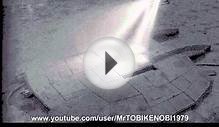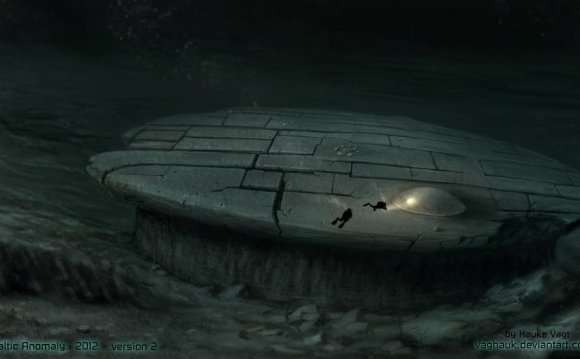
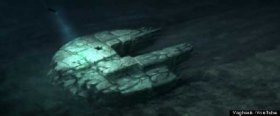 By Capers Jones
By Capers Jones
A company that locates and finds sunken ships recently turned up an unusual circular or oval formation in the Baltic Sea off the coast of Sweden on June 19, 2011. The discovery was made by the Ocean X diving team. An artist’s reconstruction is shown below:
The actual sonar image of the site is more ambiguous than the artistic reconstruction:
A sonar image of the seabed showing the object at a depth of 100 metres in the Sea of Bothnia in the northern Baltic Sea
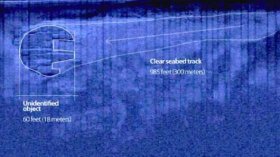 There seems to be a sort of cleared track way that runs for about 1000 feet leading to the structure. The object itself is about 200 feet across and seems to be resting on a short column as shown in another artistic rendering. The dome illuminated by a light is a creation of the artist and not part of the undersea structure:
There seems to be a sort of cleared track way that runs for about 1000 feet leading to the structure. The object itself is about 200 feet across and seems to be resting on a short column as shown in another artistic rendering. The dome illuminated by a light is a creation of the artist and not part of the undersea structure:
The material from which the object is constructed is not yet known, although there are claims on the web that titanium has been found in unspecified quantities. A sonar image from directly over the object shows its actual appearance:
This object is still being investigated and will probably turn out to be a natural rock formation of some kind.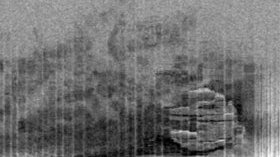 The ambiguity of the structure and its resemblance to Han Solo’s Millennium Falcon from Star Wars has made the object a hot topic on UFO and paranormal web sites.
The ambiguity of the structure and its resemblance to Han Solo’s Millennium Falcon from Star Wars has made the object a hot topic on UFO and paranormal web sites.
A google search using the phrase “Baltic Sea anomaly” will turn up quite a few reports on this structure, but no solid evidence as to what it is made from. However a spectroscopic analysis by Dr. Steve Weiner of the Weizmann Institute indicates the minerals limonite and goethite are the main components of the anomaly.
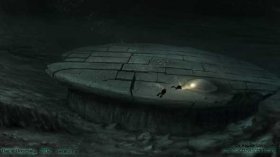 Another artistic reconstruction is shown below. For some reason a number of artists have been commissioned to create images of this structure, perhaps for commercial reasons:
Another artistic reconstruction is shown below. For some reason a number of artists have been commissioned to create images of this structure, perhaps for commercial reasons:
The fact that the structure seems to be composed of natural minerals raises the odds of it being some kind of a natural rock formation, although an unusual one. At the present moment in 2014 there are apparently no funds for additional exploration of this object.
In order for this object to be of archaeological importance, several additional pieces of information are needed:
- The mineral composition of both the artifact and the column are needed.
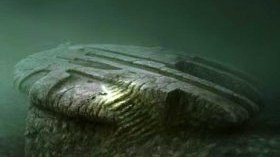 If they are of different materials the object might be a dolmen, and in fact the largest dolmen yet discovered.
If they are of different materials the object might be a dolmen, and in fact the largest dolmen yet discovered. - If the 1000 foot cleared area behind the artifact is due to some movement of the artifact itself, that would be quite significant. If it is coincidental then it adds nothing to the significance of the artifacts.
- If the artifact has any inner cavities or hidden structures that would be significant. An opening has been reported, but no details were provided.
As situation now stands the Baltic Sea object appears to be a large and unusual rock formation but otherwise nothing special.
See also:RELATED VIDEO

